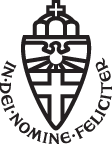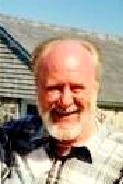Related Research Articles

Secular humanism is a philosophy, belief system or life stance that embraces human reason, logic, secular ethics, and philosophical naturalism, while specifically rejecting religious dogma, supernaturalism, and superstition as the basis of morality and decision making.

The relationship between religion and science involves discussions that interconnect the study of the natural world, history, philosophy, and theology. Even though the ancient and medieval worlds did not have conceptions resembling the modern understandings of "science" or of "religion", certain elements of modern ideas on the subject recur throughout history. The pair-structured phrases "religion and science" and "science and religion" first emerged in the literature during the 19th century. This coincided with the refining of "science" and of "religion" as distinct concepts in the preceding few centuries—partly due to professionalization of the sciences, the Protestant Reformation, colonization, and globalization. Since then the relationship between science and religion has been characterized in terms of "conflict", "harmony", "complexity", and "mutual independence", among others.

Cultural Christians are the nonreligious or non-practicing Christians who received Christian values and appreciate Christian culture. As such, these individuals usually identify themselves as culturally Christians, and are often seen by practicing believers as nominal Christians. This kind of identification may be due to various factors, such as family background, personal experiences, and the social and cultural environment in which they grew up.

Radboud University (abbreviated as RU, Dutch: Radboud Universiteit, formerly Katholieke Universiteit Nijmegen) is a public research university located in Nijmegen, the Netherlands. The university bears the name of Saint Radboud, a 9th-century Dutch bishop who was known for his intellect and support of the underprivileged.

George Vincent Coyne, S.J. was an American Jesuit priest and astronomer who directed the Vatican Observatory and headed its research group at the University of Arizona from 1978 to 2020.

Criticism of religion involves criticism of the validity, concept, or ideas of religion.
Nancey Murphy is an American philosopher and theologian who is Professor of Christian Philosophy at Fuller Theological Seminary, Pasadena, CA. She received the B.A. from Creighton University in 1973, the Ph.D. from University of California, Berkeley in 1980, and the Th.D. from the Graduate Theological Union (theology) in 1987.
The Institute on Religion in an Age of Science (IRAS) is a non-denominational society that promotes and facilitates the ongoing dialectic between religion and science. The Institute has held annual week-long conferences at Star Island in New Hampshire since 1954. The conference attracts about 250 members and non-members each year. The 1964 conference, for example, was attended by 215 conferees, with speeches by figures including Theodosius Dobzhansky.
Justin L. Barrett is an American experimental psychologist, Founder and President of Blueprint 1543, a nonprofit organization. He formerly was the Director of the Thrive Center for Human Development in Pasadena, California, Thrive Professor of Developmental Science, and Professor of Psychology at Fuller Graduate School of Psychology. He previously was a senior researcher and director of the Centre for Anthropology and Mind at the Institute for Cognitive and Evolutionary Anthropology at the University of Oxford.

The Association for Slavic, East European, and Eurasian Studies (ASEEES) is a scholarly society "dedicated to the advancement of knowledge about Central Asia, the Caucasus, Russia, and Eastern Europe in regional and global contexts." The ASEEES supports teaching, research, and publication relating to the peoples and territories within this area.

Philip Hefner is a professor emeritus of systematic theology at the Lutheran School of Theology at Chicago.
Ralph Wendell Burhoe was an important twentieth-century pioneer interpreter of the importance of religion for a scientific and technological world. He was awarded the Templeton Prize in 1980.

Issues in Science and Religion is a book by Ian Barbour. A biography provided by the John Templeton Foundation and published by PBS online states this book "has been credited with literally creating the contemporary field of science and religion."
Norbert Max Samuelson was a scholar of Jewish philosophy. He was Professor Emeritus at Arizona State University, having held the Grossman Chair of Jewish Studies there. He wrote 13 books and over 200 articles, with research interests in Jewish philosophy, philosophy and religion, philosophy and science, 20th-century philosophy, history of Western philosophy, and Jewish Aristotelians. He also lectured at university-level conferences around the world.
Willem Bernard "Wim" Drees is a Dutch philosopher. As of the 1st of November 2014 he is professor of philosophy of the humanities at Tilburg University in the Netherlands. From 2008 until 2018 he was the editor-in-chief of Zygon, Journal of Religion & Science and professor of philosophy of religion at Leiden University, the Netherlands.

Protestantism is a branch of Christianity that emphasizes justification by God through faith alone, the teaching that salvation comes by unmerited divine grace, the priesthood of all believers, and the Bible as the sole infallible source of authority for Christian faith and practice. The five solae summarize the basic theological beliefs of mainstream Protestantism.

The Center for Process Studies was founded in 1973 by John B. Cobb and David Ray Griffin to encourage exploration of the relevance of process thought to many fields of reflection and action. As a faculty center of Claremont School of Theology in association with Claremont Graduate University, and through seminars, conferences, publications and the library, CPS seeks to promote new ways of thinking based on the work of philosophers Alfred North Whitehead, and Charles Hartshorne, and others in the process tradition.
The International Association for Mission Studies (IAMS) is an international, inter-confessional, and interdisciplinary professional society for the scholarly study of the Christian mission and its impact in the world and the related field of intercultural theology. It is based in England and South Korea.

The group Science, Reason and Faith is formed by teachers at the University of Navarra. Its purpose is to promote the interdisciplinary study of issues related to science, philosophy and religion. The activities of the group cover three closely related areas: research, teaching and public engagement.
The John Templeton Foundation is a philanthropic organization that reflects the ideas of its founder, John Templeton. Templeton became wealthy as a contrarian investor, and wanted to support progress in religious and spiritual knowledge, especially at the intersection of religion and science. He also sought to fund research on methods to promote and develop moral character, intelligence, and creativity in people, and to promote free markets. In 2008, the foundation was awarded the National Humanities Medal. In 2016, Inside Philanthropy called it "the oddest—or most interesting—big foundation around."
References
- ↑ "Archived copy". esssat.eu. Archived from the original on 14 May 2019. Retrieved 20 June 2014.
{{cite web}}: CS1 maint: archived copy as title (link) - ↑ "Awarded ESSSAT Prizes | ESSSAT".